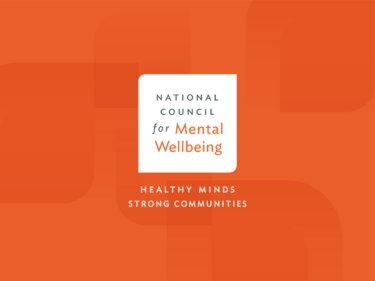Addressing Health Equity and Racial Justice

To help you address racial inequities and the associated stigmas that lead to persistent behavioral health disparities — and ensure you have the tools to support your patients and providers — we compiled this directory of resources and learning opportunities. We will update this webpage as new information and tools become available. Have questions? Let us know!
Background
Learn about our work in this space:
- Discover our policy priorities and work to prevent discrimination
- Explore our Start With Hope campaign with the CDC, Ad Council and Shatterproof
- Learn about our efforts to increase health equity nationwide
- Read our organizational health equity and inclusion statement
- View our internal diversity, equity and inclusion (DEI) commitments
Tools & Resources
Take advantage of the following opportunities:
- Bookmark our National Council blog and Mental Health First Aid blog to stay informed
- Follow us on X, Facebook, Instagram and LinkedIn for content and updates
- Get trained in Mental Health First Aid to learn how to identify, understand and respond to signs of mental health and substance use challenges in others
- Learn about our Center of Excellence (CoE) for Integrated Health Solutions program
- Participate in our Social Justice Leadership Academy Learning Series activities
- Sign up for our weekly policy newsletter and Advocacy Alerts for breaking news
- Transform mental wellbeing support for BIPOC youth by taking a free Youth Mental Health First Aid training through our partnership with Team: Changing Minds, available for community organizations that interact with youth, especially BIPOC youth who identify as male.
- Visit our events page to register for webinars and other learning opportunities
- Work with our Consulting Team to achieve your health equity goals
Stay informed by accessing our resources:
- Access for Everyone: A Toolkit for Addressing Health Equity and Racial Justice within Integrated Care Settings
- Access for Everyone: A Toolkit for Addressing Health Equity and Racial Justice within Integrated Care Settings (Spanish)
- Addressing Disparities and Increasing the Quality of Tobacco Treatment for African Americans
- Addressing Disparities in Access and Utilization of Mental Health and Substance Use Services Among Blacks and African Americans: Solutions from Community Stakeholders
- Conversation Paths to Support Loved Ones
- Conversations on Diversity, Equity and Inclusion with the Medical Director Institute
- Motivational Interviewing Tips for Providers
- Suicide in U.S. Black and African American Communities
- Training and Educating Public Safety to Prevent Overdose Among Black, Indigenous, and People of Color Communities: An Environmental Scan
- Wellbeing Wednesdays: Episode 7 – Advancing Health Equity
- Wellbeing Wednesdays: Episode 10 – Adding Up the Cost of Health Inequity
Original Content
Read our National Council blog posts:
- AAPI Heritage Month: We Aren’t Doing Enough to Help AAPI Youth
- For Staff, by Staff: Inclusivity Through Community Building
- Furthering the Wellbeing of BIPOC through Integrated Care
- Health Equity in Substance Use Campaigns Part I: Honoring Diversity
- Health Equity in Substance Use Campaigns Part II: Engaging Honestly
- Health Equity Remains Elusive, But These Strategies Will Help
- Let’s Do More to Promote Mental Wellbeing Among LGBTQ+ Communities
- LGBTQ+ Identity Beyond the Bottle: Creating Substance-free Safe Spaces for Queer People
- Maybe You’re Just Human
- No Reject, No Eject: Making Social Change Happen
- Setting a Goal for a More Diverse Workplace
- Stigma Regarding Mental Illness Among People of Color
- Taking Steps to Improve Health Equity Inclusion
- Transforming Behavioral Health Services for Black and African American Communities
- Value, Dignity and Respect for All
- We Need More Than Inclusion: Reframing Engagement to Foster Diversity and Equity
Read our Mental Health First Aid blog posts:
Webinar Recordings
Access our webinar recordings:



